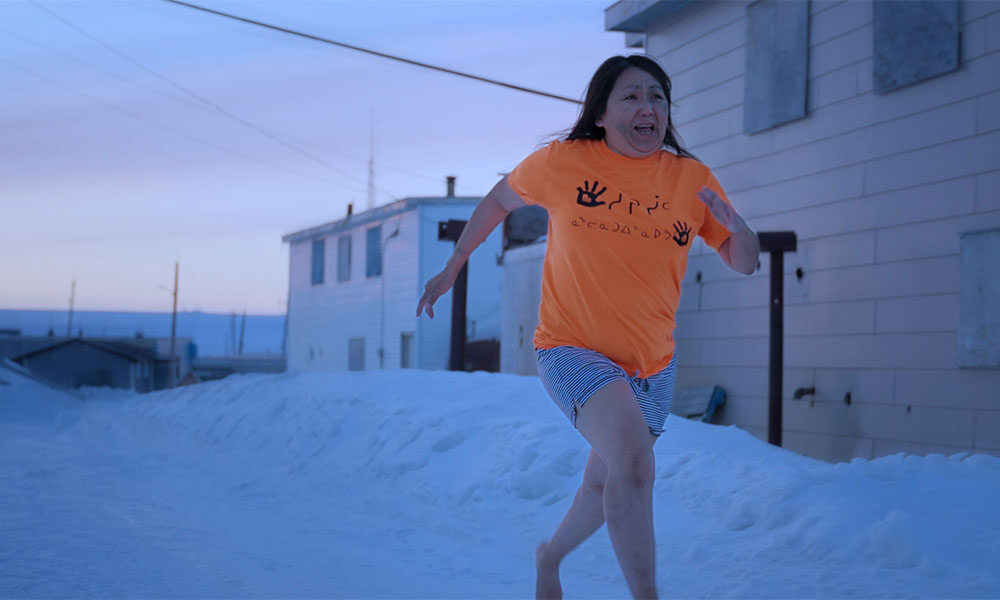At a time when the world was in the middle of the global pandemic, the world had to make do with the new normal. Everyday activities, from transactions and interactions, shifted online thanks to the acceleration of digitalization. This also allowed for families physically apart from one another to reconnect through regular video chats. ‘Tautuktavuk’ (“What We See”), the film by directors Carol Kunnuk and Lucy Tulugarjuk, addresses this yearning for reconnection.
More importantly, however, the movie examines the difficult journey toward healing that they need to embark on. Along the way, they would be reminded of the importance of family and community, especially at a time of enforced isolation.
The Impact of a Global Pandemic to the Indigenous Communities
“Tautuktavuk” centers on Saqpinak and Uyarak (Kunnuk and Tulugarjuk, respectively), two Inuit sisters whose lives have significantly diverged. We see them talking through a series of video chats during the Coronavirus pandemic, revealing how far they are from each other. While Saqpinak has remained in Nunavut, Uyarak lives in Montreal.
With strict COVID lockdowns in the Canadian Arctic (even some two years into the pandemic), the region basically gets closed off from the rest of the world. Add to this the fact that they are over two thousand kilometers apart, the sisters largely rely on modern technology to maintain regular communication. These calls, shown in the film as brief exchanges, feel like what conversations are between siblings—succinct, mundane, and personal.
The film’s opening sequence, however, depicts a harrowing event that affected one of the sisters. Worse, it has taken her ages to realize how she blocked those memories off; and how the lockdowns indirectly led to her recalling her traumatic experience. With their regular video chats serving as the main expository tool for the film, “Tautuktavuk” becomes a series of vignettes of heartache and healing.
[Related Review: Channel 4’s ‘Help’ a Harrowing Portrayal of Covid-19 Inside of Stretched-Thin Care Homes]

Confronting Trauma (and Healing from It) at a Time of Enforced Isolation
With the global pandemic serving as backdrop, isolation becomes an integral theme of the movie. And such isolation only exacerbates matters as the filmmakers point out. In one of their video chats, the sisters discuss the alarming rise in domestic violence reports, given the lockdown measures implemented worldwide.
The film, then, zeroes in on the sisters’ hard discussions about domestic and childhood sexual abuse they witnessed and experienced. In one particular exchange, we see how they deal with their experiences around trauma differently:
“I understand why people who carry secrets have so much anger.”
“Keeping it a secret for too long can break you down.”
With “Tautuktavuk,” Kunnuk and Tulugarjuk present a powerful story of siblings doing their best to connect during the pandemic. Even more, the film shows a relationship between two sisters who each deal with trauma in their own way.
The Verisimilitude of ‘Tautuktavuk’ is its Ace in the Hole
Kunnuk and Tulugarjuk’s storytelling approach in this film is impressive, to say the least. Employing an observational filmmaking style gives the film a somewhat documentary feel. Even the video chat scenes feel authentic, complete with choppy audio and lagging, borderline-pixelated video that betray an unstable internet connection.
The results, obviously, are more effective: by default, the audiences’ perception blurs the line between fiction and autobiography. Suddenly, the sisters’ discussion about trauma, sexual violence, and abuse carry a sense of urgency. It’s a smart filmmaking choice, the credit to which going to the directors. And with both filmmakers acting their hearts out, at certain points in the film I stopped seeing actors and began seeing actual sisters talking about their everyday lives.
Eye-opening, patient, and urgent, “Tautuktavuk” is an evocative tale of healing from—and overcoming—trauma at a time of lockdowns and enforced isolations.